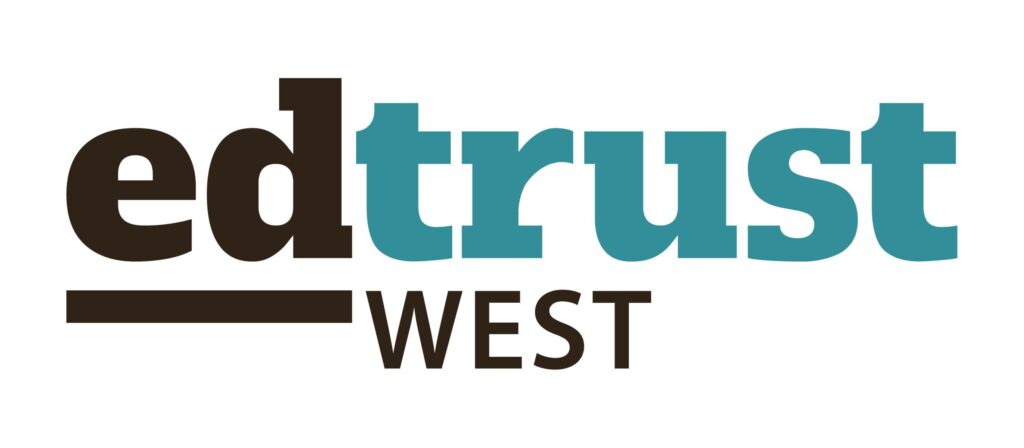Dear Friends and Partners,
This month, districts across California are holding public hearings on their Local Control and Accountability Plans (LCAPs) and will adopt final budget plans by the end of June. During this exciting time, stakeholders have the opportunity to review and comment on these plans.
To help support that process, The EdTrust—West (ETW) has developed a Local Control and Accountability Plan (LCAP) Evaluation Checklist. Our LCAP Evaluation Checklist is designed to help stakeholders—including advisory committee members and the general public—review district LCAPs and frame their comments and questions. It is meant to assist in evaluating whether an LCAP meets legal requirements and whether it clearly communicates district goals and plans in keeping with the spirit of the Local Control Funding Formula (LCFF). It is not meant to evaluate the quality or likely effectiveness of proposed programs and services.
The checklist includes guiding questions that relate to each of the three sections of the LCAP (e.g., community engagement, goals, and actions/services). The questions in each of these sections are separated into two groups: questions that refer to the LCAP’s legal requirements, and questions that refer to promising practices that go beyond legal requirements, leading to a more coherent and transparent LCAP.
We recommend that stakeholders use the checklist in the following way: (1) review the LCAP using the checklist; (2) based on the responses to the checklist questions, determine areas of the LCAP that may benefit from additions, changes, or clarification; and (3) then, communicate to the district any changes or additional information that is necessary to improve the LCAP’s transparency and/or clarity. Of course, parents, members of the public, advocates, and educators may also wish to offer comments on the substance of the goals and services that are of particular importance to them.
Click here to get a copy of the LCAP Evaluation Checklist. More LCFF/LCAP information and resources are available on Fair Share 4 Kids. Go to fairshare4kids.org to find community-friendly publications and useful resources such as the Fair Funding Tool, which provides an estimate of the minimum funding amount each district must spend in supplemental and concentration grants, and the second edition of the LCFF Community Brief.
Sincerely,
The EdTrust—West

